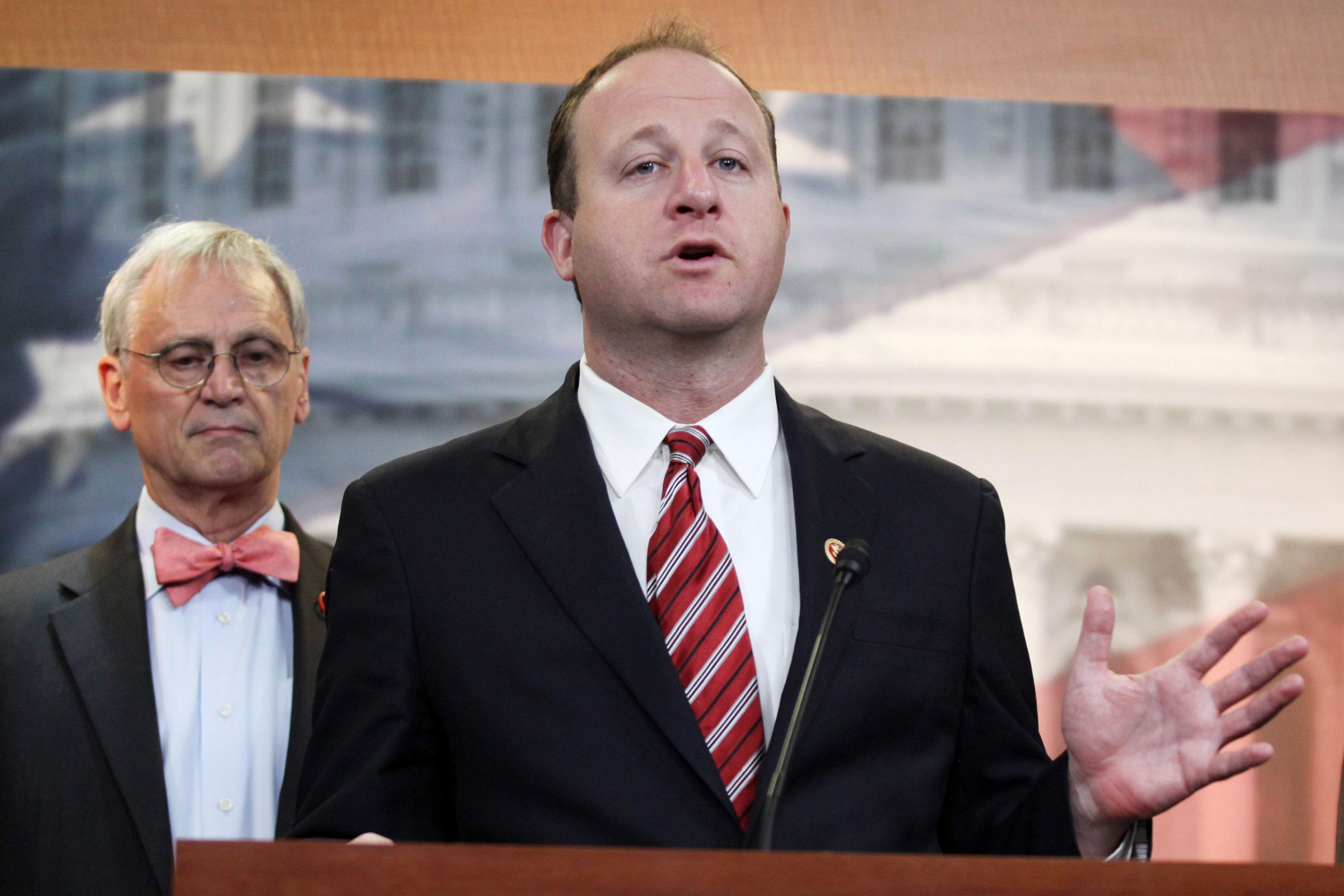

Attorney General Jeff Sessions’ Thursday decision to rescind Obama-era protections for legal marijuana states came as a shock to many lawmakers. But what at first felt like a major setback instead turned into a rallying cry for members of the House Cannabis Caucus.
“We have bills, I’ve authored one — the Regulate Marijuana Like Alcohol Act — there’s others that would simply reschedule,” said Colorado Democrat Rep. Jared Polis, a member of the group. “We’ve never had a vote on them.”
Recreational marijuana was made legal in Colorado when Amendment 64 was approved by voters in 2012. In 2014, sales went into effect, boosted by 2013’s Cole Memorandum which directed U.S. attorneys not to make marijuana prosecutions a priority in states where voters have approved its legalization.
The Cole memo “undermines the rule of law and the ability of our local, state, tribal, and federal law enforcement partners” to carry out their mission, Sessions said Thursday. Now, the Department of Justice can “enforce the laws of the United States.”
The Cannabis Caucus, a bipartisan group founded in early 2017, disagreed.
“All my colleagues point out how strongly the public supports legal marijuana,” said Oregon Democrat Earl Blumenauer, as the group renewed its call to align federal law with state-driven marijuana legalization, including Colorado’s. “It’s over 150,000 jobs across the country, as well as people who depend on this, not just for their livelihood but for their physical well-being,” he said.
Blumenaur also posted video of President Trump speaking on the record with a local Denver news outlet about supporting state’s rights on legalizing marijuana.
In Colorado, on the recreational side alone, the state's Marijuana Enforcement Division has licensed 509 stores, 720 cultivations, 279 product manufacturers, 12 testing facilities, and 10 transporters as of January of this year. The department has also issued 25,644 support occupational licensees, 11,660 key occupational licensees, and 1,616 business owners. Overall, it’s a billion dollar industry in the state.
Nationally, Forbes reported that the marijuana industry generated $6.5 billion in legal sales in the U.S. in 2016.
- Seeing Green: Marijuana By The Big Business Numbers In Colorado
Yet right now, marijuana is a Schedule 1 drug under the Controlled Substances Act, along with heroin, LSD and ecstasy. Opioids like OxyContin and Codeine are Schedule 2 and 3 respectively, meaning the federal government considers them less dangerous than marijuana. Polis calls that ridiculous and believes that a majority of the House would approve of rescheduling.
Polis said bipartisan support in the past to protect medical marijuana gives him hope that Congress can do more for states that have approved the drug for recreational use. He also advocates for pushing for legalization of marijuana at the federal level, but wants to make it clear that he the ultimate decision on whether or not to legalize marijuana falls to the states. His interest is in getting the federal government out of the way.
Colorado Rep. Ed Perlmutter, who also supports legalization, has sponsored legislation for a few years now called the SAFE act. It would allow banks to do business with dispensaries without fear of federal law enforcement. He said bipartisan support for the bill has been growing. And this may be the push he needs to ultimately bring it to a vote.
“I’ve got 58 cosponsors on it, now, I think it would pass on the floor of the House, and I intend to really push hard,” he said, adding that Thursday’s decision may be end up being a boost for other pieces of marijuana-related legislation that have languished without being voted on.
“I think that this now will be an impetus to get the bills — to get my bill and some other bills — moving,” he said.
Both lawmakers point to the Rorabacher-Blumenauer amendment from 2014, which prevents the federal government from funding federal drug enforcement aimed at medical marijuana. It’s been renewed several times, most recently, in the latest stopgap bill that funded the federal government through Jan. 19.
The Cannabis Caucus is confident it will be renewed again, because the amendment has had such strong bipartisan support in the past.








